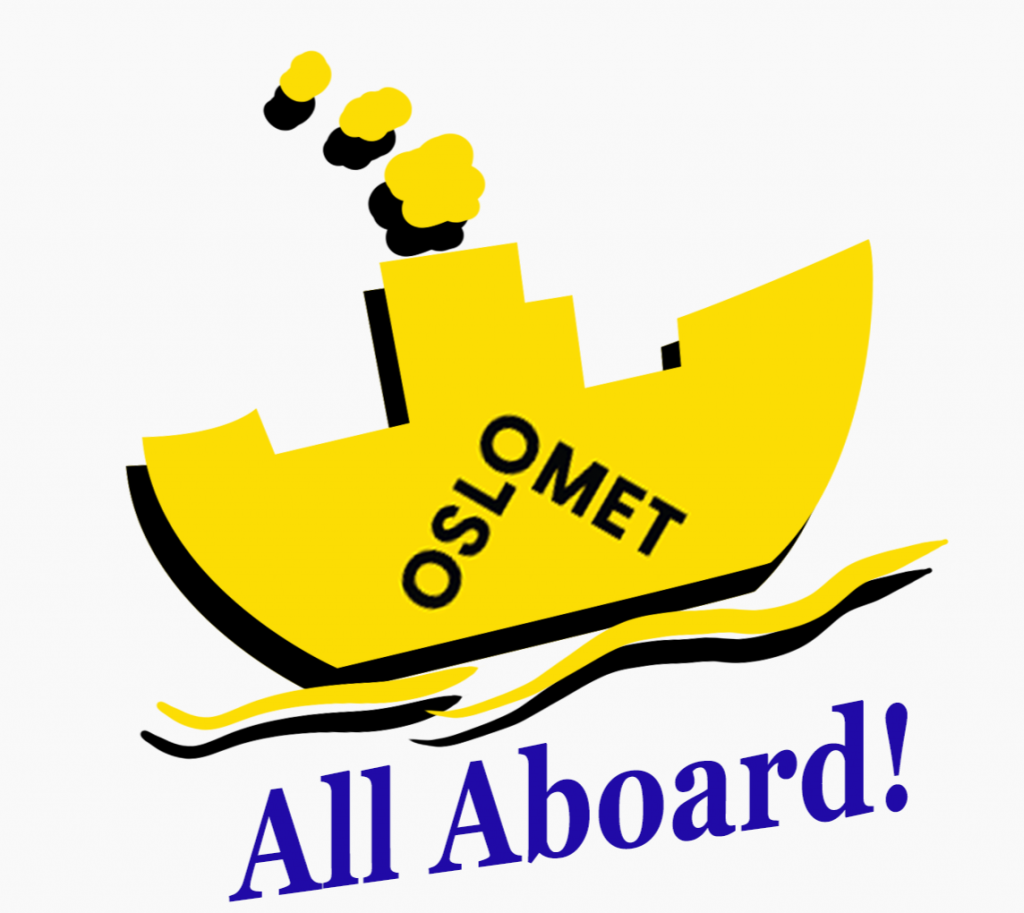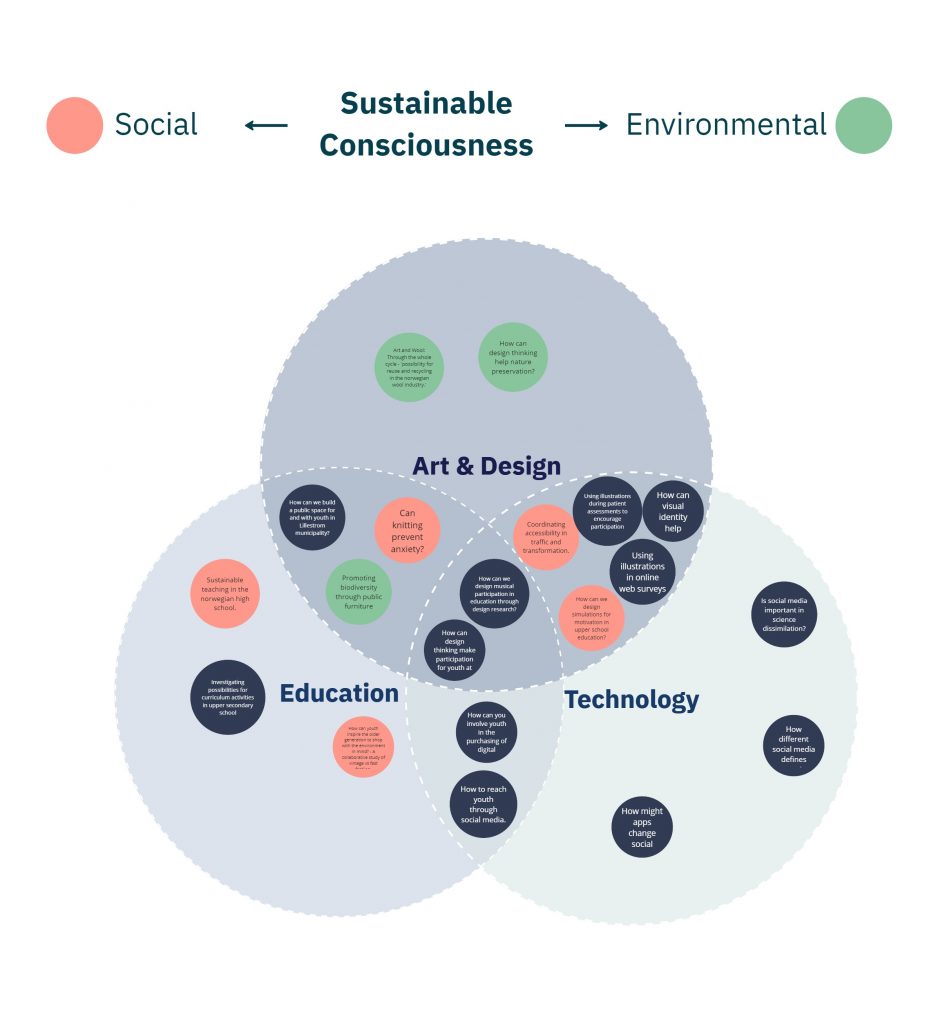
RESEARCH SHIP
This workshop was organized in collaboration with the Philosophy of Science and Design Research course, as a part of Product Design – Design in Complexity program at OsloMet. The workshop was designed as a kick-off event for further collaboration between the students and researchers, intending to support students during their academic course. The workshop aimed to promote possible collaborations between researchers and students which could be beneficial for both parties.
Aim
Encouraging and experimenting with multi-stakeholder partnerships in dynamic and collaborative ways.
The start of the Research Ship involved a “speed dating” research session. Each person had their research interests along with their name on a card, and the task was to match both participant’s interests into a research topic or article that they could both work on in the future. We took all of those research titles and created a Venn diagram – separated into the three most common categories – Art & Design, Education and Technology. We also identified and labelled the topics that had an element of “sustainable consciousness” based on the content.

Power shifts and youth participation…
A significant number of projects signal a demand for a power shift within educational systems, emphasizing the need for greater youth participation and even youth-led initiatives. Whether it is designing simulations for motivation, building public spaces for and with youth, or exploring sustainable teaching methods, a common thread underscores the desire for active involvement and agency among the youth demographic. This trend reflects a growing recognition that fostering meaningful and effective education requires a departure from traditional power structures towards more inclusive and participatory frameworks.
Technology’s lag in sustainable consciousness…
The majority of technology-focused projects appear to lack a pronounced ‘Sustainable Consciousness.’ Unlike their counterparts in education and art/design, these projects tend to concentrate more on the technological aspects without explicit consideration for sustainable practices, be it social or environmental. This observation points towards an area where the integration of sustainable principles into technological advancements and utilisations may require more attention and intentionality. As we navigate the connections and themes of technology, there is an opportunity to bridge domains and infuse technology-centric projects with a heightened environmental and social awareness.
Research-Ship – Conceptualising Exercise
In the pursuit of fostering collaborative and sustainable partnerships within the education system, three distinct projects were developed through a networking session between students and researchers. The aim was to facilitate ideation and collaboration in a co-creative setting, with a focus on generating innovative solutions for more sustainable practices in education. Research questions formulated earlier in the session were conceptualised and expanded upon in the form of posters.
Poster 1 – How might apps change social interactions?
Overview: Investigating the impact of apps on social interactions, this project delves into both positive and negative aspects, exploring the potential effects on long-distance relationships, user perspectives, and concerns about disability.
Key Elements: Data and connection categorization and mapping. Emphasis on understanding the social webs and questions on measurement tools.


Poster 2 – Designing simulations for motivation in upper secondary education.
Overview: This project centers around the design of simulations to motivate students in upper secondary education. Key elements include encouraging more interaction between students and teachers, advocating for systemic change, and promoting co-creation and user involvement.
Key Elements: Visual elements: Illustrations of VR experiences, emphasizing engagement and enjoyment.
Poster 3 – Sustainability in High School Teaching.
Overview: Focused on sustainability in high school teaching, this project explores agents of change, participatory democracy, and life skills, and views sustainability as a curriculum reform, addressing the BIG question.
Key Elements: Visual elements: Doodles symbolizing infinity, a globe, links, circular arrows, A to B, and a frame. Proposal to turn the project into a book for theoretical exploration and experiential learning.

Identifying common threads…
User-Centric Approach:
All projects emphasize the active involvement of users or students in the research or educational process.
Recognition of the need for nuanced measurement tools in understanding social interactions and educational effectiveness.
Collaboration and Co-Creation:
Each project advocates for collaboration, co-creation, and the involvement of multiple stakeholders.
Focus on systemic change in education, promoting active student participation, and engaging teaching methods.
